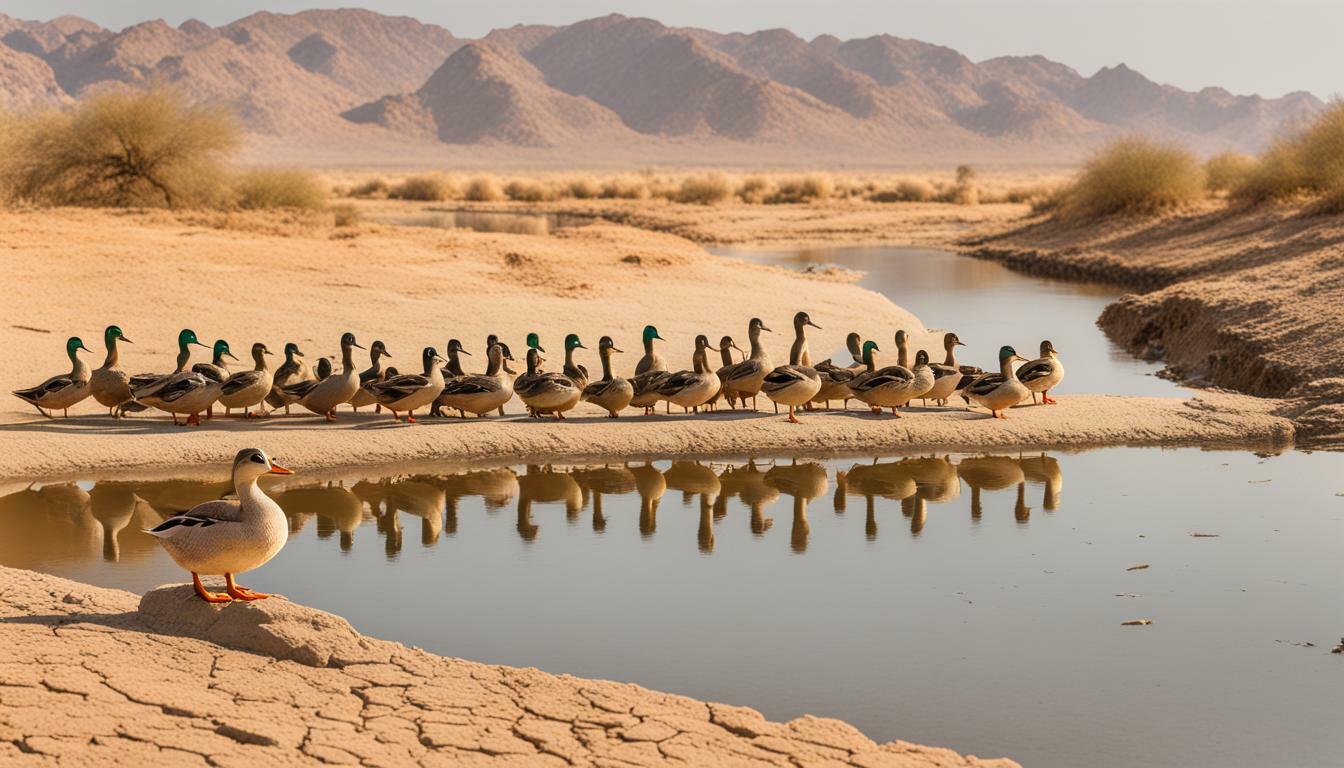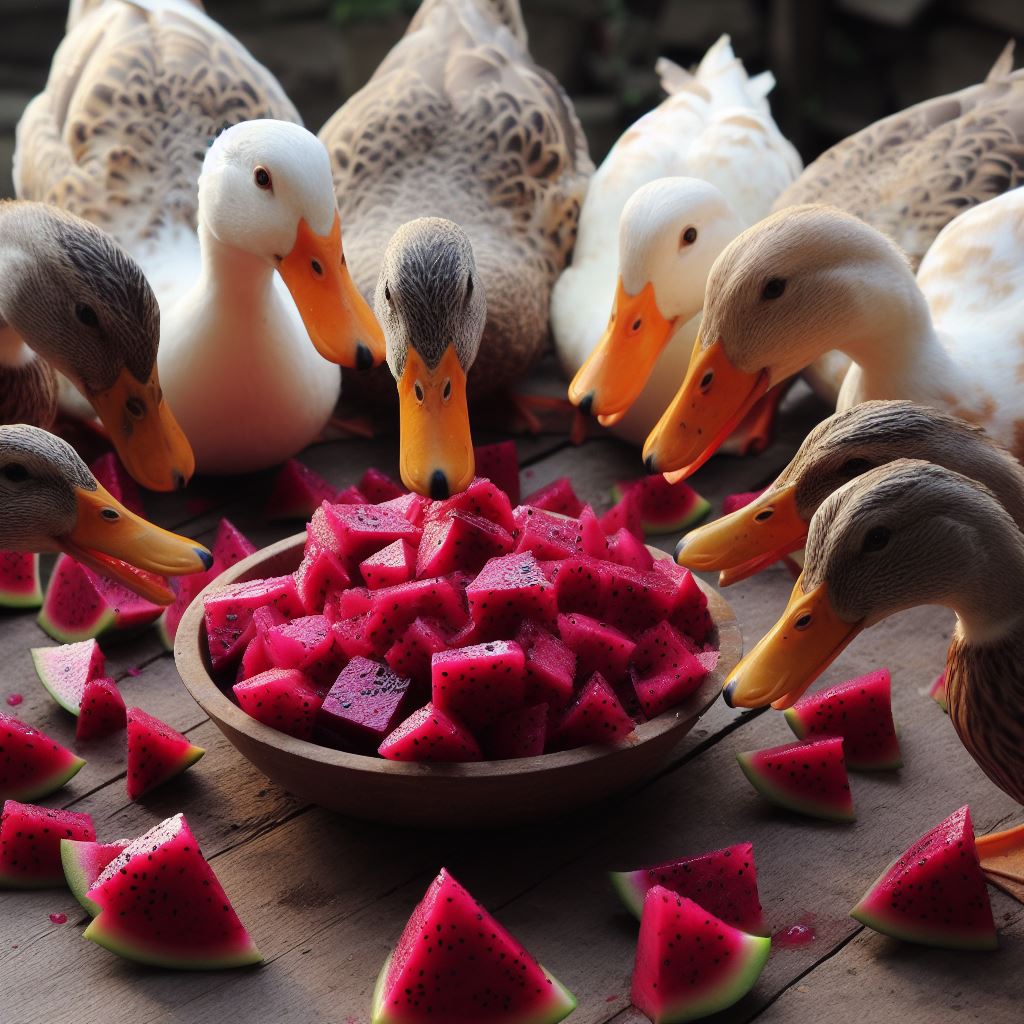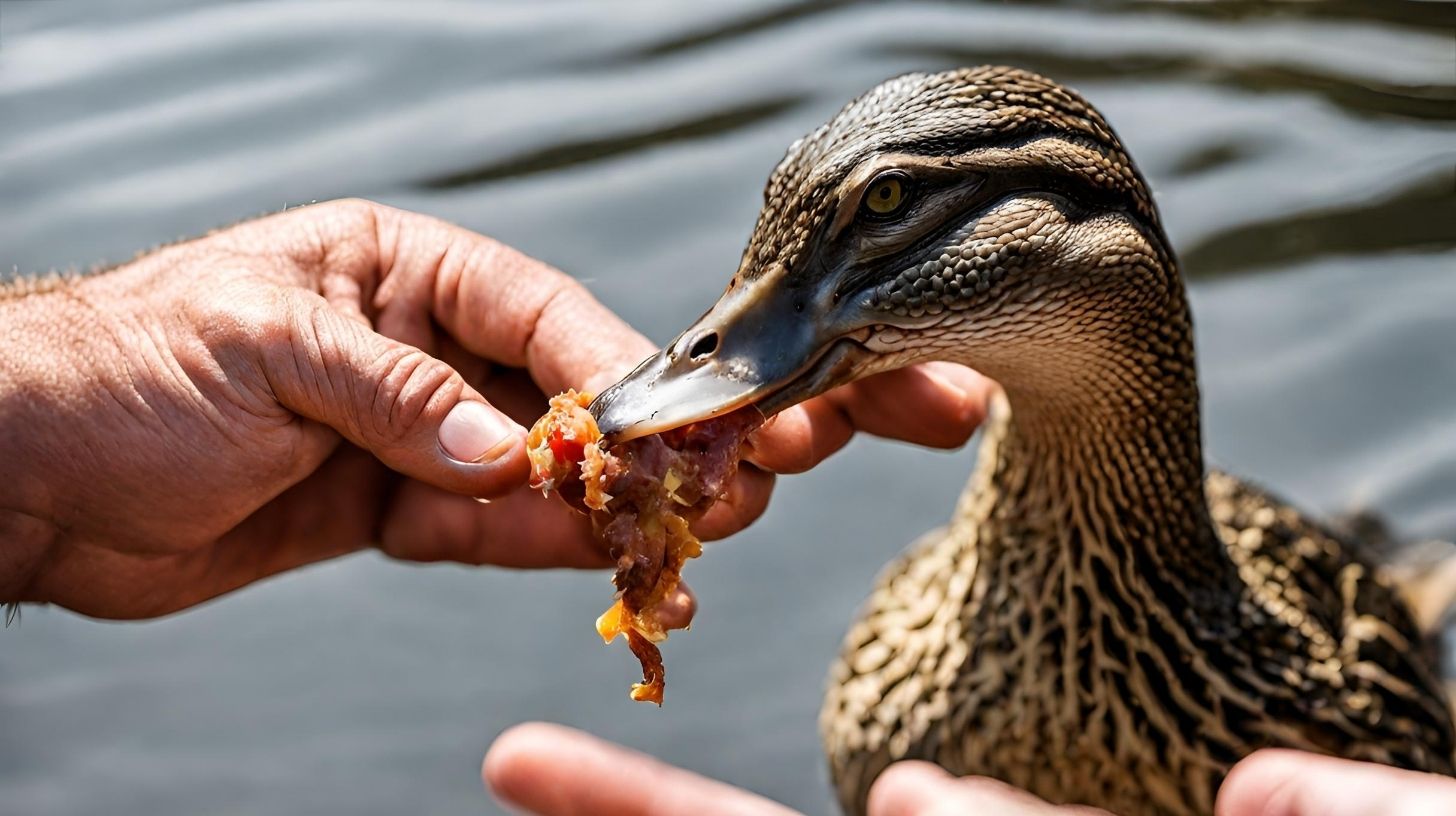How Long Can Ducks Go Without Water?

Table of content:
Ducks have a remarkable ability to survive for extended periods without access to water. This adaptation allows them to thrive in various habitats, even when water sources are scarce or temporarily unavailable. In this article, we’ll explore duck physiology, behavior, and habitat to understand how these waterfowl are able to go days or even weeks without drinking.
Duck Physiology Enables Water Conservation
Ducks have evolved specialized physiological and anatomical features allowing them to minimize water loss. Their bodies are structured to conserve moisture and use metabolic water to meet their needs when external water is not available.
Plumage and Skin
A duck’s feathers are structured overlappingly to repel water and prevent heat loss. The underside is covered in dense down feathers that trap air and insulate the body. Ducks also produce an oily secretion from their uropygial gland near the base of their tail. They spread this oil through their feathers to maintain their waterproofing.
A duck’s skin has a thick epidermis with a cornified layer that prevents evaporation. Their legs have scales to retain moisture. Webbing between their toes also limits surface area exposure.
Respiratory System
Ducks have efficient respiratory systems adapted to minimize moisture loss. Their nasal passages capture moisture when they exhale. Air capillaries in their lungs extract oxygen while limiting water vapor loss.
Kidneys and Digestion
A duck’s kidneys are specialized to concentrate urine and excrete nitrogenous wastes while retaining water. Their digestive system is designed to utilize metabolic water extracted from food. A duck’s feces is also excreted as a semi-solid paste to conserve water.
Behavioral and Habitat Adaptations
In the wild, ducks utilize habitats and behaviors allowing them access to sufficient water. During periods of drought or scarcity, they have specialized survival strategies.
Wetland Habitats
Most duck species rely on wetland ecosystems. These habitats provide adequate food and water sources. Ducks may swim and immerse their head to drink water while foraging. Ponds, marshes, and flooded fields sustain ducks during the majority of the year.
Flying to Water Sources
When local conditions dry up, ducks can fly substantial distances to find new water sources. During migration, some ducks traverse hundreds of miles between seasonal habitats. Their ability to fly allows them to travel to meet their needs.
Metabolic Water
Ducks can utilize metabolic water from food to meet their requirements during periods without drinking water. Their digestive system extracts moisture from consumed foods, especially greens, fruits, and insects.
Energy Conservation
In arid conditions, ducks reduce activity to conserve energy and moisture. They spend more time resting in the shade. Their heat loss is minimized by vasoconstriction in their legs. Their webbed feet also provide additional surface area for heat exchange.
Specialized Behaviors
Some species may paddle or submerge their head in dew or condensation for moisture. Localized precipitation and moisture collection are used opportunistically.
How Long Can Duck Go Without Drinking?
The maximum duration a duck can go without water depends on the species, ambient conditions, food intake, and the duck’s behavior. Under ideal circumstances, most ducks can survive 2-3 days without drinking water.
In cooler temperatures and with adequate food, ducks can go longer without water. Cases of ducks surviving for a week or more have been observed during winter when melting snow provided hydration.
Ducklings and molting adults are more vulnerable without water access. Ducklings may perish after only 12-24 hours without water. Adults undergoing molting have higher water needs and less ability to fly to new sources.
While they can endure short periods, access to adequate water is still essential for long-term health. Most ducks will gradually weaken and ultimately perish if water deprivation persists.
Key Factors Allowing Ducks to Go Without Water
-Specialized kidney function concentrating urine and retaining water.
-Cornified skin layer preventing evaporation losses.
-Plumage structured to repel water and insulate.
-Ability to fly substantial distances to new water sources.
-Using metabolic water extracted from food intake.
-Reducing activity and heat generation.
-Exploiting dew and localized precipitation.
Conclusion
A duck’s physiology and behavior are uniquely adapted to minimize reliance on drinking water for survival. In the right conditions, most species can endure days without access by conserving moisture and utilizing alternatives. However, ducks still require abundant water to thrive long-term. Their adaptations allow them to be resilient when facing temporary droughts or shortages during their complex seasonal migrations. A duck’s ability to go without water highlights the amazing diversity of strategies waterfowl possess to survive and flourish across many environments.
Welcome. I’m Adreena Shanum, the proud owner of this website, and I am incredibly passionate about animals, especially poultry. I founded adreenapets.com as a labor of love, stemming from my desire to share my knowledge and experiences with poultry enthusiasts worldwide.




